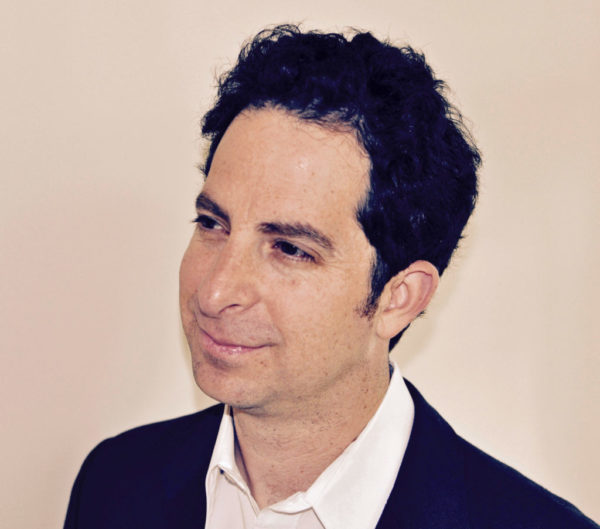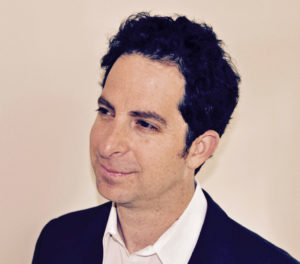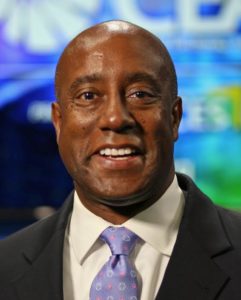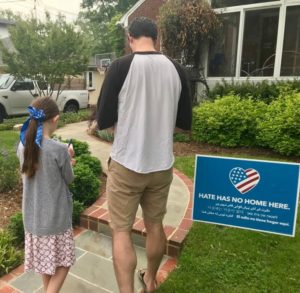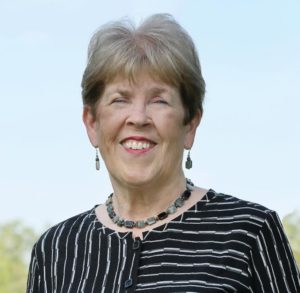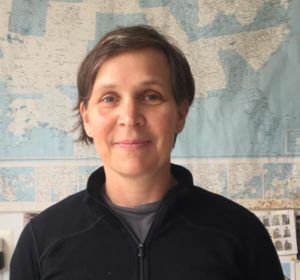Progressive Voice is a weekly opinion column. The views and opinions expressed in the column are those of the individual authors and do not necessarily reflect the views of their organizations or ARLnow.com.
In the upcoming June 12 primary, the only local race in Arlington is for the Democrat who will run for the County Board. Progressive Voice asked each candidate “What does progressive leadership mean to you and give a concrete example of how you have shown such progressive leadership in Arlington.” Here are their responses.
 Chanda Choun
Chanda Choun
I am Chanda Choun (CHAHN-duh CHOON) and running to be your next Arlington County Board Member. Actions speak louder than words. Being progressive and being a progressive leader should not be a partisan marker. Progressivism is a marker of being a good person. Everyone has the duty to advance their neighbors and themselves economically, socially and politically toward equality of opportunity.
Economic advancement is most impactful at the individual level. I work for a 300-person cybersecurity company. In tech, there is an underrepresentation of women and minorities. But as a manager with hiring authority, I have built a diverse team that is an outlier in my workplace and industry: well-paid engineers who are black, white, Asian, Hispanic, women.
Social advancement begins with hearts and minds. Society still suffers from the ills of racism, misogyny and other discriminations of body and person. There are protections against such violations, but gaps remain. We must foundationally do our part by understanding others’ experiences. I am a participant, member, donor and volunteer in organizations that force me to step in someone else’s shoes. Find me at Aspire Afterschool Learning, Arlington Food Assistance Center, Arlington Gay & Lesbian Alliance, Doorways for Women, El Bu-Gata or any other group that supports others needing assistance and acceptance.
Political advancement should not be associated with political party, though one party may be more aligned with progressive goals than the others. Many constituencies need help to exercise their freedom of voice and vote. For example, I served with the Arlington Young Democrats to get millennials to civically engage. I physically brought new peoples into activism with underrepresented minorities.
Everyone deserves an equal opportunity in life. Everything I do endeavors to get people to that stage economically, socially and politically. Showing up is half the battle. Join me. Be a progressive leader.
 Matt de Ferranti
Matt de Ferranti
Progressive leadership means working to make a measurable difference in addressing the issues that have the biggest impact on people’s lives. It means taking on big challenges — often contentious ones — with fearless leadership. In my time in Arlington, I’ve tried to live out this vision of progressive leadership and I believe my experience is indicative of the leader I would be on the County Board.
I currently am Chair of Arlington Public School’s Budget Advisory Council (BAC), which advises the School Board on the annual operating budget and the Capital Improvement Plan. The work had been particularly difficult for the past two years, since we are facing increasing enrollment with a very tight budget.
Last year, Arlington as a whole faced the choice of cutting services or seeking out additional revenue. In my capacity as the BAC Vice Chair, I stood in support of advising the School Board to ask the County Board for additional revenue and I stand by that. As a result of that decision, APS was able to continue their plans to add school counselors and psychologists as well as increase pay for cafeteria workers and bus drivers. This year, as the Chair, I led the BAC in another round of difficult discussions, recommending reductions in spending areas that would serve the community without detrimentally impacting the student experience.
Throughout my time on the BAC, we have reaffirmed the importance of investing in our schools, voted to increase teacher pay and strengthened the rigor brought to the analysis of our school budget. I believe then, as I do now, that we need to invest strategically to create the county that we want to live in, even when it means making difficult choices. That’s the kind of progressive leadership that I will bring to the County Board.
Chanda Choun is a cybersecurity manager and part-time Army Reserve soldier who resides in central Arlington.
Matt de Ferranti works on Native American education issues, is Chair of the Budget Advisory Council to the Arlington Public School Board and is a member of the Joint Facilities and Housing Commissions.



